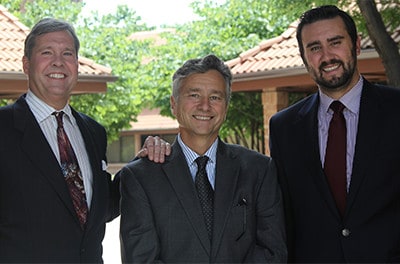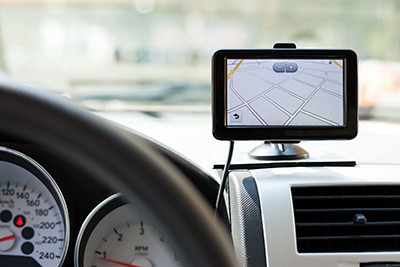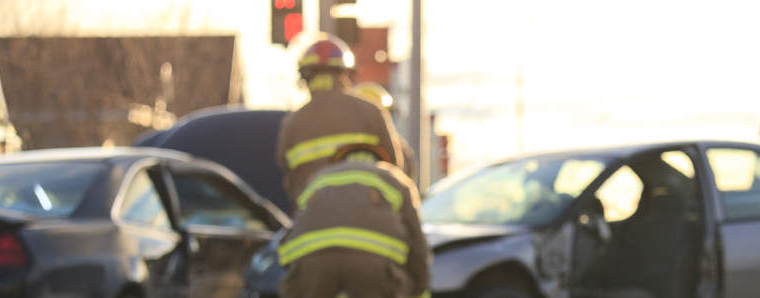Perhaps you’ve recently heard a story on the news about a person who faithfully followed their GPS instructions only to find themselves in the middle of nowhere, stuck on a median after being told to make a U-turn, or even floating in a lake. You might have even chuckled to yourself about how ridiculous it seems for a person to let GPS instructions override their common sense. Unfortunately, there are many more GPS related car accidents that we hear about; your GPS can leave you stranded, involved in a serious accident and, in extreme cases, even dead.
Personal Navigation Skills Have Gone by the Wayside
Experts believe that the wide availability of GPS has left many people helpless when their GPS fails. Personal navigation skills are seldom taught to the younger generation, and have been largely forgotten by those who did learn the skills. The over-reliance on technology can result in an inability to cope when that technology fails—as it does on a fairly regular basis. Consider the mother who drove her kid-filled car onto commuter rail tracks in Brighton, Massachusetts as she faithfully followed her GPS’ directions. Unable to extract her mini-van from the tracks, the mother managed to get her children out of the vehicle just before a train collided with it.
In Whittier, Alaska, a man’s GPS told him to turn right after leaving the ferry boat. Unfortunately, the man followed those directions, ending up in the harbor, struggling to get himself and his dog out of the vehicle before it sank. While these and many other instances of GPS misdirection are bad, in some cases listening to a GPS can actually result in death. A mother and her six-year-old son followed GPS instructions, ending up stuck on a remote back country road in Death Valley. The vehicle ran out of gas, and the mother and son ran out of water, leading to the death of the boy due to extreme desert temperatures.
Further Reading: Seven Effective Safety Features You Should Know About
Death by GPS
Wilderness coordinator, Charlie Callagan, has even given the issue a name—“death by GPS,” saying people place too much trust in their GPS device, causing them to end up in the middle of nowhere in a dangerous situation. In Death Valley, due to the number of GPS misdirection incidents, the park has posted warnings on their website which tells visitors not to rely on their GPS or cell phone for accurate directions. Many of the roads shown on GPS systems are no longer passable, are too rough for most vehicles, or have even been officially closed. Further, many people are not altogether clear about how their GPS works. When told to find the shortest route, the GPS may not find the shortest safe route.
Decreasing Brain Function a By-Product of GPS Reliance?
Aside from the obvious dangers of over-reliance on your GPS navigation system or smart phone, psychologists point to another type of danger—the “dormancy of brain functions we’d otherwise use to find our way around is directly harming our physical health.” Canadian researchers conducted clinical trials on the issue which showed those who consistently used GPS as opposed to navigating the old-fashioned way (with a compass and map) suffered a measurable loss of gray brain matter in the hippocampus. These results tie into a huge body of brain research which basically concludes when the brain is not utilized on a regular basis, skills are lost and the chances of the person developing dementia or Alzheimer’s increase.
Use Common Sense When Listening to Your GPS
Perhaps your best defense against a serious situation where you end up lost or floating in the water is good old common sense. Don’t go where there is not a road, even if your GPS tells you to do so. Understand your GPS could be plotting the shortest distance which may not be the best or safest route. Keep a paper map of the area where you will be traveling in your car just in case, as well as a compass, and plenty of water, particularly if you are traveling through the desert.
Contact Our Experienced Northern Colorado Personal Injury Lawyers
 At Hull & Zimmerman, P.C., we want all Colorado drivers to arrive safely at their destinations. Taking the necessary safety precautions before driving and during driving will help ensure that you are not injured in an accident. If you or someone you love has been injured in a car accident in Broomfield, Northglenn, Westminster, Thornton, or anywhere in Colorado, it is important to contact our experienced personal injury attorneys immediately. At Hull & Zimmerman, P.C., our committed personal injury lawyers are dedicated to the belief that everyone deserves justice. Contact us at (303) 423-1770 or (866) 385-3505.
At Hull & Zimmerman, P.C., we want all Colorado drivers to arrive safely at their destinations. Taking the necessary safety precautions before driving and during driving will help ensure that you are not injured in an accident. If you or someone you love has been injured in a car accident in Broomfield, Northglenn, Westminster, Thornton, or anywhere in Colorado, it is important to contact our experienced personal injury attorneys immediately. At Hull & Zimmerman, P.C., our committed personal injury lawyers are dedicated to the belief that everyone deserves justice. Contact us at (303) 423-1770 or (866) 385-3505.
Our personal injury lawyers have extensive experience representing injured accident victims in Broomfield, Arvada, Superior, Lafayette, Louisville, Erie, Brighton, Commerce City, Northglenn, Westminster, Thornton, Longmont, and throughout Colorado.


